Why Everyone Should Read "A Piece of Cake" by Cupcake Brown
Narratives of enslavement are still being told over a 150 years later. Black women's stories need to be heard, especially Cupcake Brown's. #BLM
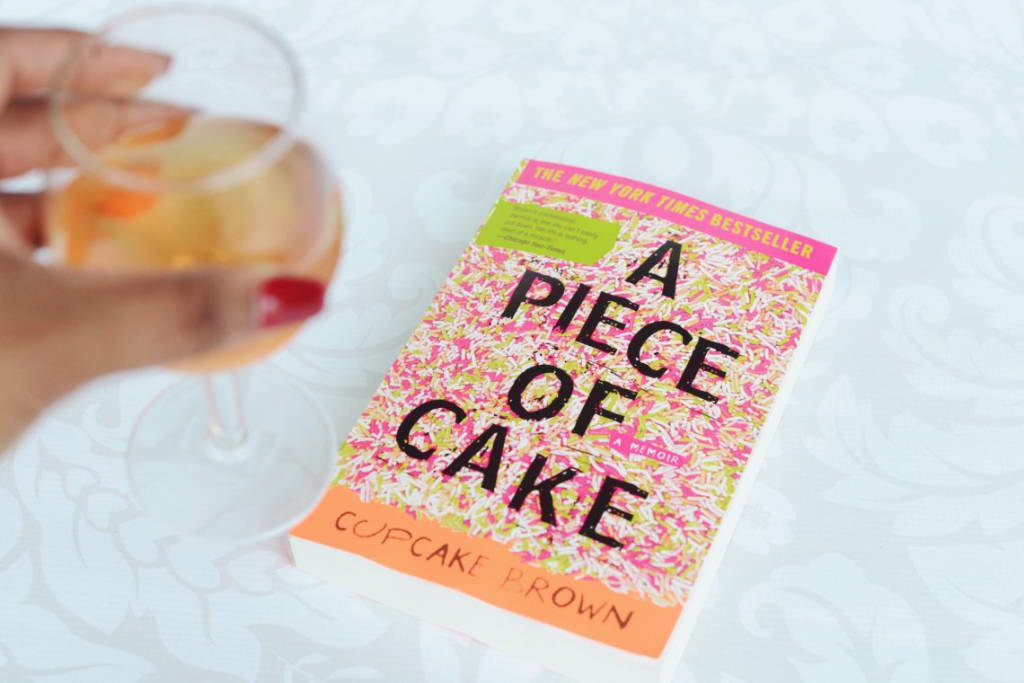
TRIGGER WARNING: the following review discusses some graphic and severe elements of Cupcake Brown's memoir, "A Piece of Cake." While some details may be disturbing, it is important to talk about them, as they pertain to systemic injustice we the people are trying to overcome. Thank you.
In the wake of anti-racist activism burning in the forefront of our country's conscience, I've seen many great books recommended to the public. For example, on every BLM reading list, I’ve seen The New Jim Crow by Michelle Alexander. I’ve seen a lot of my friends recommend White Fragility: Why It’s So Hard for White People to Talk About Racism by Robin Diangelo. The great James Baldwin’s essays are back in the spotlight, and I’m finally going to purchase the YA novel, The Hate U Give, by Angie Thomas.
These books and more are so powerful in combating racism towards Black people because they highlight the Black experience and are unafraid to delve into uncomfortable truths; truths like police brutality and mass incarceration. But while these books are obviously great at explaining what racism in America looks like, I've seen few narrative nonfiction books - specifically memoirs by Black women - getting recommendations. Books like Maya Angelou’s I Know Why The Caged Bird Sings, Negroland by Margo Jefferson, and especially When They Call You a Terrorist by Patrisse Cullors and Asha Bandele. (Cullors is one of the three founders of the Black Lives Matter movement.)
I think personal accounts of Black women's societal struggles are equally as powerful as books which firmly define racism, white supremacy, mass incarceration, and police brutality. The beauty of the memoir is that it turns the personal experience into a universal one. You get to walk in someone else's shoes for a hundred pages or more.
Last year, my college's incomparable creative writing professor, Jerry Williams, assigned Cupcake Brown's A Piece of Cake for our class to read. The special topic for that semester was addiction and recovery memoirs. Jerry assigned the usual stories - James Frey's A Million Little Pieces and Dry by Augusten Burroughs - and needed another memoir to fill the course curriculum. A Piece of Cake was recommended to him by a friend. Jerry had not read the book beforehand, and was excited to page through chapters alongside our class.
We were assigned the first fifty pages to read by ourselves, then came back to class the following week. I remember the air in the room that day. For the first time in months, everyone was excited and ready to have an open discussion about the book. Jerry walked into the classroom, sat down by his desk, and slowly began the lesson. His fingers shook a little as he put on his reading glasses. He sighed.
"I'm sorry class," he said, "I have to admit...I had a hard time getting through this book. Not because it's bad," he paused, trying to find the right words.
"But because this is one of the most brutal memoirs I've ever read."
Don't let the cute little sprinkles on the cover fool you. Cupcake Brown's A Piece of Cake is about the author's extremely difficult childhood. It details her horrible experiences with the American foster care system, rape, prostitution, gang violence, miscarriage, and her addiction to almost every drug out there.
Brown's life story is so nightmarish, you won't want to believe it actually happened. But with her incredibly honest language and sharp knowledge of the law, you know she's telling the truth. Perhaps the craziest thing about this particular horror story is that it actually ends in success. Brown got sober in rehab, finished law school without any loans, and went on to practice at Bingham McCutchen: one of the nation's largest law firms.
Brown wasn't born into privilege, but she did have a good childhood with her mother and step-father until her mother passed from a seizure when she was eleven years old. If it hadn't been for her biological father stuffing Cupcake and her younger brother into the foster care system in an attempt to claim their mother's life insurance policy, her life story would have turned out very different.
There is a lot to learn from reading A Piece of Cake, but perhaps the strongest takeaway from this memoir is that it highlights just how broken social institutions in the United States are. Systems set up to protect people can be used against them. We know from documentaries like Ava DuVernay's 13th and books like The New Jim Crow that for Black Americans, the criminal justice system, mass incarceration, and prison labor are echoes of the enslavement they had to endure in the past. In her memoir, Cupcake Brown is claiming the foster care system is also one of these echoes for innocent children.
And how does she prove the foster care system is akin to slavery?
In A Piece of Cake, Brown secretly uses elements of the traditional slave narrative.
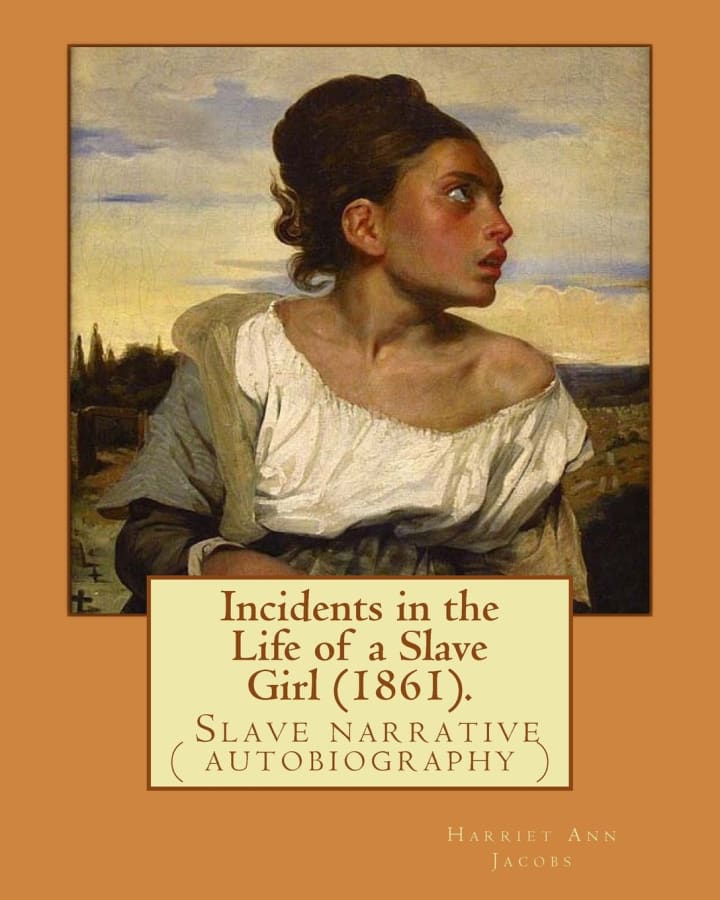
Before my time in Jerry's creative writing class, I took a "Writing, Race, and Resistance" course that highlighted Black literature between from the 1800's to present day. The first book we read was Harriet Ann Jacobs's Incidents in the Life of a Slave Girl. A bestseller in Europe during its time, it recounts Jacobs's life as an enslaved person and her escape from the institution. She uses the pseudonym "Linda Brent" when discussing herself. (A form of protection for the author.) Incidents is regarded as one of the greatest contributions to the slave narrative genre, and I found many striking parallels between Jacobs's memoir and Brown's. I will be discussing some of these parallels throughout the rest of this article.
Besides Harriet Ann Jacobs, other renowned Black authors added their personal accounts of enslavement to the genre during the abolitionist movement, including Frederick Douglass (1845), William Wells Brown (1847), Henry Bibb (1849), Sojourner Truth (1850), Solomon Northup (1853), and William and Ellen Craft. (1860)
While every slave narrative is different, the genre does have some key elements. Regarding the slave narrative, the Encyclopedia Brittanica states...
Typically, the American slave narrative centres on the narrator’s rite of passage from slavery in the South to freedom in the North. Slavery is documented as a condition of extreme deprivation, necessitating increasingly forceful resistance. After a harrowing and suspenseful escape, the slave’s attainment of freedom is signaled not simply by reaching the “free states” of the North but by taking a new name and dedication to antislavery activism. The Narrative of the Life of Frederick Douglass, An American Slave, Written by Himself (1845), often considered the epitome of the slave narrative, links the quest for freedom to the pursuit of literacy, thereby creating a lasting ideal of the African American hero committed to intellectual as well as physical freedom.
Cupcake Brown routinely states her early childhood was blissfully innocent, and so does Harriet Ann Jacobs in the first chapter of Incidents in the Life of a Slave Girl. Harriet Jacobs starts her memoir off with the sentence, “I was born a slave, but I never knew it till six years of happy childhood had passed away.” (Jacobs, 1) Later on in the chapter, she claims, “When I was six years old, my mother died; and then, for the first time, I learned, by the talk around me, that I was a slave.” (2) After Jacobs’s mother dies and she is no longer provided protection, comfort, and easy access to food, she quickly learns how brutal slave life can be. The same happened to Cupcake Brown in foster care.
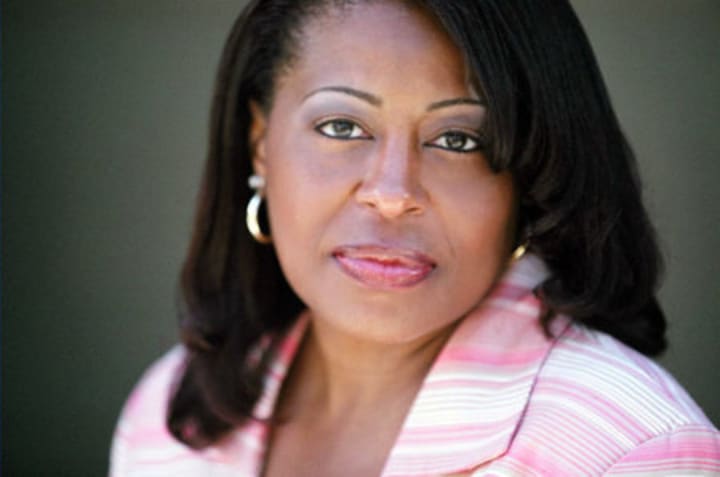
When Cupcake Brown describes the trial which sent her and her brother to foster care, the whole scene gives off slave auction vibes. Like a slave auction, the children are separated from the family members (particularly Cupcake's step-father) who truly care about them. Incidents in the Life of a Slave Girl also talks about auctions and separation – not only separation in consequence of auctions, but from escape as well. Harriet is separated from her grandmother and friends due to auction. Her own children are sold to another slave master after she escapes from her plantation.
Additionally, Harriet has a brother, William, who is separated from her when he is sold to another plantation. Like Harriet, Cupcake has a brother named Larry. In the eleventh chapter of A Piece of Cake, she mentions how often her and Larry tried to escape their foster mother’s house. She says that Larry and her left and reappeared back at the house on alternating times, and states, “once I left Hillcrest in San Diego, Larry and I never saw each other again.” (Brown, 77)
A staple of all slave narratives is for the narrator to describe the cruelty the slave master inflicted upon the enslaved persons. In Cupcake's memoir, this master is Diane, her foster mother. She talks about how Diane blocks off areas of her house to her and Larry except for when they’re cleaning them. Diane forces the children to clean, as she is overly-obsessed with cleanliness. (Especially in her European living room.)
Like any slave master, she physically abuses Brown. Diane punches her and Larry in their arms when she first gives them a tour of her living room, and later on, is the reason for Brown's miscarriage. Like a slaveholder using a whip, Diane has a stick wrapped in leather that she calls the “bull whip.” She uses it to beat Cupcake and the other foster kids in the house whenever they cause “severe infractions.”
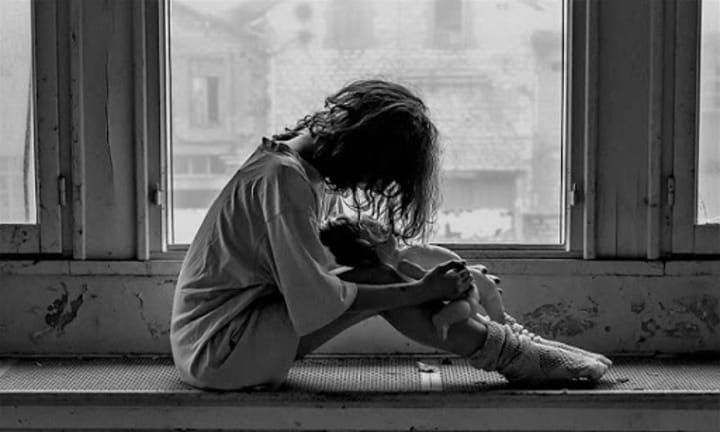
A reason why Incidents in the Life of a Slave Girl is considered a special gem in the slave narrative canon is because it dives deep into the overlooked sexual assault Black women endured at the hands of white male slaveholders. Throughout the memoir, Jacobs talks about her friends who fell victim to this kind of assault, and how they gave birth to illegitimate children because of these rapes. (Which made their lives harder, as the white wives of the male slaveholders would become jealous.)
Brown was often raped and experienced sexual abuse at the hands of her foster caretakers. In A Piece of Cake, she does not shy away from detailing these instances and her thoughts while they happened. The first man who rapes Cupcake also introduces her to alcohol, starting her long battle with addiction; another form of enslavement.
But like Harriet Ann Jacobs when she consents to a relationship with a white slaveholder, Brown also learns that sex can be used as a form of protection. After Diane, another foster parent forces Brown to perform oral sex on him three times a week. While this cruelty is absolutely horrifying, it offers Brown protection from another wicked foster mother. Additionally, Brown is able to use prostitution as a source of income while she is too young to be hired for other jobs. She uses the money she gains from turning tricks to buy whatever she wants. Brown writes...
“The lessons were clear: men want you only for sex; sex makes you money; money bought necessities like food, shelter, booze, and drugs…Most important, doing anything anywhere was better – and safer – than just sitting at Diane’s waiting for the next beating.” (52)
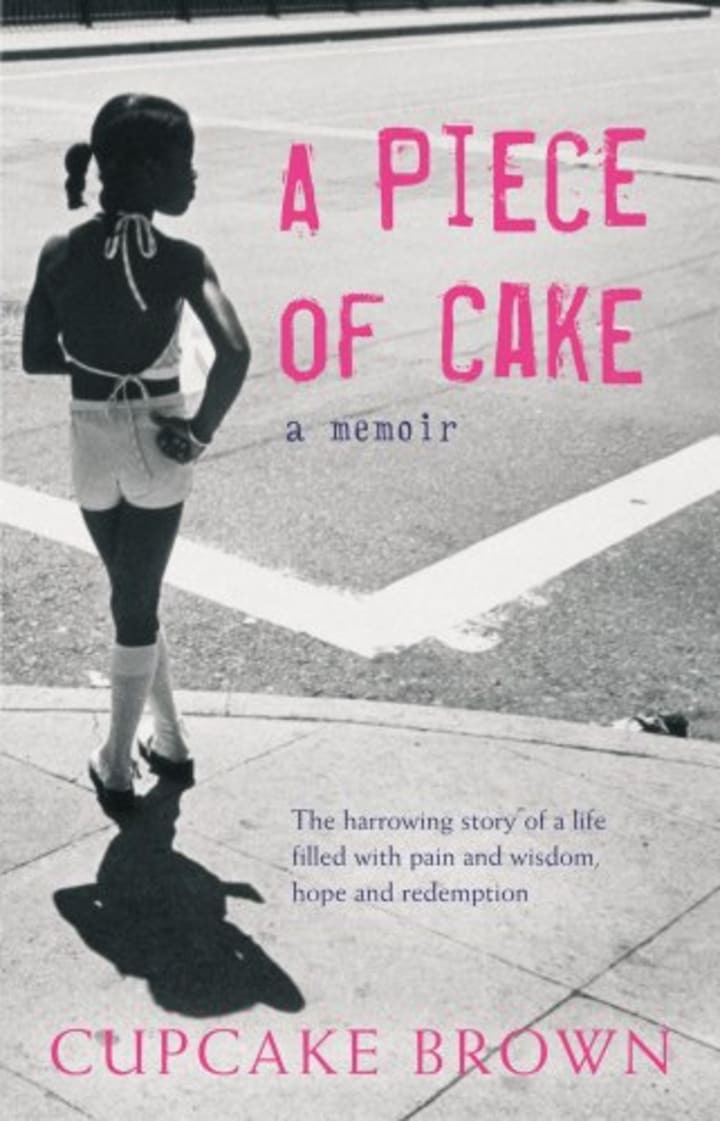
Eventually, Brown finds her way out of the foster care system and cycles of abuse. Like other slave narratives, Cupcake is able to take her own name as a mark of independence. Like Harriet Jacobs and "Linda Brent," Cupcake Brown had another name, La'Vette, which was given to her by her "sperm donor" father. She is called La’Vette all throughout childhood, but eventually, decides to take back the name “Cupcake.” Cupcake explains her reasoning like this...
“See, when Momma told me that “Daddy” changed my name because he didn’t like Cupcake, I thought she had meant my daddy – not Mr. Burns – hell, I had never even heard of Mr. Burns. But it was not my daddy; it was Mr. Burns who’d changed my name from Cupcake to La’Vette. The same Mr. Burns who caused me to be up in that van having “cheerleading practice” with my forty-five-year-old foster father…And I would take back my birth name – the name my mother gave me. From now on, I would use my real name – Cupcake. And, since La’Vette was the name chosen by the fucked-up asshole – who was directly responsible for my fucked-up life – I would use that name when I did fucked-up stuff.” (Brown, 63-64)
Additionally, another staple of the American slave narrative is the narrator travelling from the south to the north in order to find liberation. Cupcake's journey starts in San Diego, and ends north in San Francisco after she graduates from law school at USF - starting a fruitful career.

Keeping up with our times, A Piece of Cake does make some jabs at the police. In the beginning of the memoir, a cop returns a runaway Cupcake back to Diane's despite obvious signs she's being abused. As a prostitute, one of Cupcake's clients was a cop. Additionally, after she narrowly survived a gang-related shooting, the police at the scene did not want to take her to the hospital because they said she would, "be a dead n**** in a year."
In fact, Cupcake has said she actually found a family in running with the local Crips. In an Entertainment Weekly article, she mused...
"To this day, I haven’t felt that kind of love and camaraderie,” she says, almost wistfully. ”The thing about a gang, all you had to be was down. In AA, if you get drunk, we’re gonna leave your ass alone. But in a gang, they don’t care if you’re drunk, loaded, crippled, blind. But, yes,” she sighs, ”it’s an unhealthy kind of camaraderie.”
These kinds of statements from Brown and others in A Piece of Cake makes her readers realize the criminal world isn't so black and white; it's grey. There's goodness in gangs, just like there's evil in foster care.
Even though A Piece of Cake has been published since 2005, things are still looking up for Brown. She's been actively talking about the Black Lives Matter movement on Twitter, and just announced there is a script for a movie adaptation of A Piece of Cake. For those of us who have been fans for a while, the news was long overdue. Even Jerry said in class Cupcake's emotional story is worthy of the silver screen.
I hope my review has convinced you to pick up Cupcake Brown's memoir. I only scratched the surface of what her amazing story entails. You can buy A Piece of Cake by clicking here. (The seller, Elisabeth's Bookshop & Writing Centre, is a Black-owned business! You can shop online from more Black-owned bookstores by clicking here!)
Please do your best to educate yourself during these times of unrest. And of course, always be open to lifelong learning. xxx
_______________________________________________
AUTHOR'S NOTE
Any tips left on this story and others will be going to BLM to fund the movement. For every individual contribution, I'm also donating a dollar into the fund. (So if ten people donate, that's $10 from me.) If you'd like to learn more, click here! Don't forget to keep signing petitions and sending emails. If you're looking for something to do, here's a masterlist of ways you can help out. Thank you to those of you who have donated so far - I've already sent $50 in donations to the organization. :)
For this challenge article, I'm recommending Brenda Mahler's A Book That Taught Me to Check My Premises. "Atlas Shrugged" is one of those really important books everyone needs to read once in their lifetime. I loved the in-depth review.
Hope to see y'all celebrating and honoring Juneteenth, and I'll talk to you in the next article. ^-^
-Katy
About the Creator
Kathryn Milewski
Insta: @katyisaladybug
Also a blogger at Live365.com
Playlists, memoirs, and other wacky pieces.



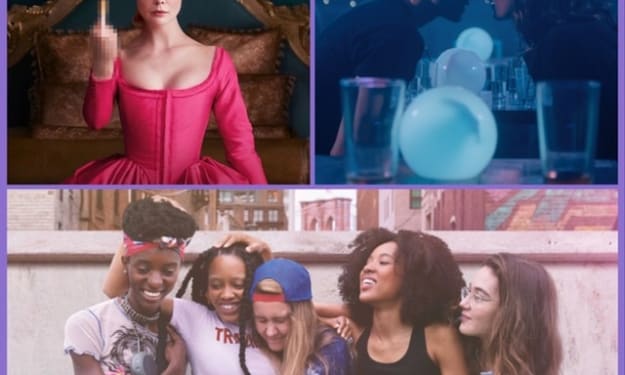



Comments
There are no comments for this story
Be the first to respond and start the conversation.